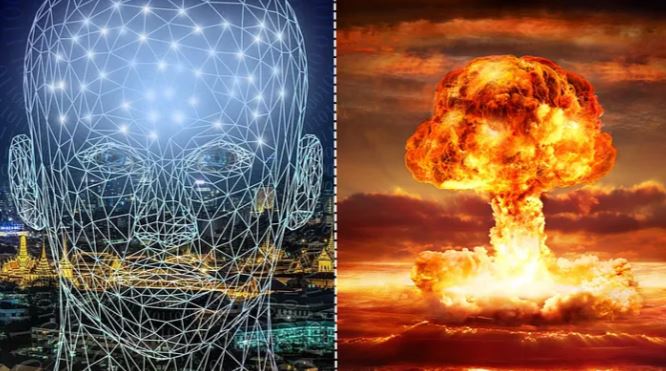Introduction: The incorporation of Artificial Intelligence (AI) into different facets of our lives has aroused both enthusiasm and anxiety in the domain of technical developments. One of the hypothetical fears prevalent in public discourse is that AI will be able to forecast and even instigate catastrophic catastrophes such as World War 3. In this essay, we will look at the various theories and facts surrounding this intriguing issue.
Possibilities of AI Predicting World War 3:
Data Analysis and Pattern Recognition:
AI’s strength lies in its ability to analyze vast amounts of data and identify patterns that may go unnoticed by human analysts. Proponents argue that with access to comprehensive geopolitical data, AI could potentially recognize precursors to international conflicts, offering an early warning system.
Sentiment Analysis:
AI algorithms can be designed to analyze public sentiment by scanning social media and news outlets. Sudden shifts in public mood, especially in regions prone to conflict, might be indicative of rising tensions, providing a basis for predicting potential geopolitical turmoil.
Predictive Modeling:
AI can be used to create complex predictive models based on historical data, political events, and economic indicators. By processing and analyzing this information, AI could forecast the likelihood of certain events escalating into a global conflict.
Facts Surrounding AI’s Role in World War 3:
Lack of Conscious Intent:
It is crucial to understand that AI, as of now, lacks consciousness and intentionality. AI systems are tools created and controlled by humans. They do not possess the inherent motivation to initiate or contribute to warfare autonomously.
Ethical and Bias Concerns:
The use of AI in predicting global conflicts raises ethical concerns. The algorithms may inadvertently reflect the biases of their creators, potentially leading to inaccurate predictions or exacerbating existing tensions.
Political and Human Factors:
While AI can process vast amounts of data, it may struggle to comprehend the complexities of human motivations and political maneuvering. The intricacies of international relations involve a multitude of factors that go beyond statistical analysis.
Conclusion:
While the idea of AI predicting and triggering World War 3 makes for compelling speculative fiction, the current reality is more grounded. Artificial Intelligence, at its core, is a tool designed and controlled by humans. While it can contribute to the analysis of geopolitical trends and potential conflicts, it lacks the consciousness and intent necessary to initiate global warfare. As we continue to explore the possibilities and limitations of AI, it is essential to approach these technologies with a nuanced understanding, separating fact from fiction.
Can AI accurately predict the outbreak of World War 3?
While AI has the potential to analyze vast amounts of data and identify patterns, accurately predicting the outbreak of a global conflict involves complexities that extend beyond the capabilities of current AI systems. Factors such as human motivations, political maneuvering, and unpredictable events play crucial roles.
How does AI analyze geopolitical data to foresee potential conflicts?
AI utilizes data analysis, pattern recognition, and predictive modeling to process geopolitical information. By examining historical data, economic indicators, and public sentiment, AI algorithms can offer insights into potential areas of concern. However, ethical considerations and biases in data must be taken into account.
Can AI trigger World War 3 on its own?
No, AI does not have the capacity to autonomously initiate warfare. It is a tool created and controlled by humans. The responsibility for decision-making lies with human operators, and AI lacks consciousness and intent. The use of AI in conflict scenarios raises ethical concerns, but it does not act independently.
What role does public sentiment play in AI’s predictions of global conflicts?
AI can analyze public sentiment through sources like social media and news outlets. Sudden shifts in public mood, especially in regions prone to conflict, might be indicative of rising tensions. However, interpreting public sentiment accurately and understanding its correlation with geopolitical events requires careful consideration.
What are the ethical concerns surrounding the use of AI in predicting world events?
Ethical concerns include the potential biases present in AI algorithms, as they may reflect the perspectives of their creators. Additionally, the reliance on AI for critical decisions raises questions about accountability and transparency. Balancing the benefits of AI in predictive analysis with ethical considerations remains a challenge in the evolving landscape of technology and geopolitics.


